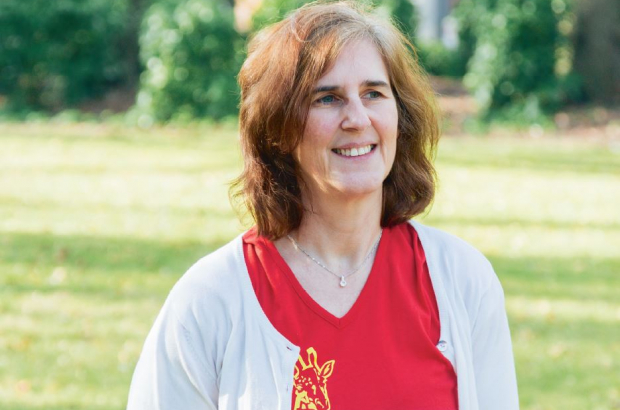- Daily & Weekly newsletters
- Buy & download The Bulletin
- Comment on our articles
Out of the slums: How the Giraffe Project helps Kenyan children
Denise Baines is a teacher at the European School in Laeken and founded the Giraffe Project to help educate children in the slums of Nairobi, Kenya. The charity sponsors two primary schools and has its own secondary school, where they teach boys and girls the social and educational skills they need to build better lives.
What are the day-to-day challenges facing the children at school in Nairobi?
At the start, their main needs were actually food, because they were coming to school hungry. They might have black tea for breakfast and no lunch. Sometimes they get money for chips, but many of the children who come to school really only have school meals. So providing a food programme early on was our number-one priority. They now have breakfast and lunch at school and the teachers have seen a huge difference – the children can concentrate. They also didn’t even have textbooks until we began sponsoring them.
How are their educational needs different from children in Brussels?
We have to provide everything for them. They come with no background, nobody reads books to them in bed, their parents are frequently illiterate and have very little education, and the entire responsibility is on the school. A lot of the challenges are behavioural problems. You have to teach them to respect the premises. We have to show and teach them how to behave, how to sit behind desks. They have the social skills you get from growing up in a slum – they have to learn everything, how to talk to people and how to treat each other.
Is there a common language?
Language is a challenge. There are 42 tribes in Kenya with 42 languages. There’s a national African language, Swahili. Kenya adopted English as a language of instruction and the national exams are in English, so the kids have to learn Swahili and then study in English, and then speak another language at home. In the slum, the languages get all mixed up, and they have developed a patois, which is constantly changing. A lot of the kids have serious problems with language.
How does their background affect how they learn?
There are huge challenges in terms of just teaching the children how to study. We have to train them how to manage their time. They don’t know that just staring at a book isn’t working hard. Their self-esteem is very low, especially the girls. They come in knowing they’re on the bottom rung of society. Many have been abused or neglected, and they need a lot of counselling. We employ teachers who have an understanding of these kids to look at the child from a holistic point of view. If you don’t address these issues they’ll end up dropping out or taking drugs and then the cycle is ruined. We teach them that they’re just as good as the rich kids; that they have the potential to be somebody and to make a difference to people around them. We teach them to believe in themselves.
What is the attitude towards schooling for girls?
We do very much focus on the girls. Many families won’t educate the girls. We have a mixed school and the girls need a lot of support and counselling. It’s vital to keep them in school as it means they will get married later in life, have fewer children themselves and look after them better. It’s the same programme for girls and boys. We teach the boys how to respect the girls. Boys need to learn to take the lead and be responsible for their families.
How do teaching methods differ?
In Kenyan schools, they sit in rows, with dictated notes, learn by heart and regurgitate. In our schools we’ve taught them to work in groups, to do project work and collaborative learning, and have given them computers. It’s totally different from just listening to the teacher talking. Now there are textbooks, a library and a science lab. We’ve been doing teacher training with them and they have much more modern teaching methods now.
What subjects do they study at secondary school?
They all have to do English, Swahili, maths, and then a general science, history or geography, and religious education. We’ve tried to bring in business studies or agriculture as ultimately they’re going to have to make their own living. Unemployment among 18- to 35-year-olds is 65% and there’s no social security.
What successes have you seen?
Since 2005, we have had 200 students who have graduated. We have several nurses, a few physiotherapists, one girl who became a pharmacist, and many who have gone to catering college. We have several who are teachers and many boys doing motor vehicle mechanics. Quite a lot do a business course and try to get jobs at a big IT firm. A number work in hotels or restaurants, or small business – they’re still fairly poor, but they’re earning and not living in squalor. It’s a big step up.
Photo: Natalie Hill. This article first appeared in The Bulletin Spring 2017. Click here to subscribe...









